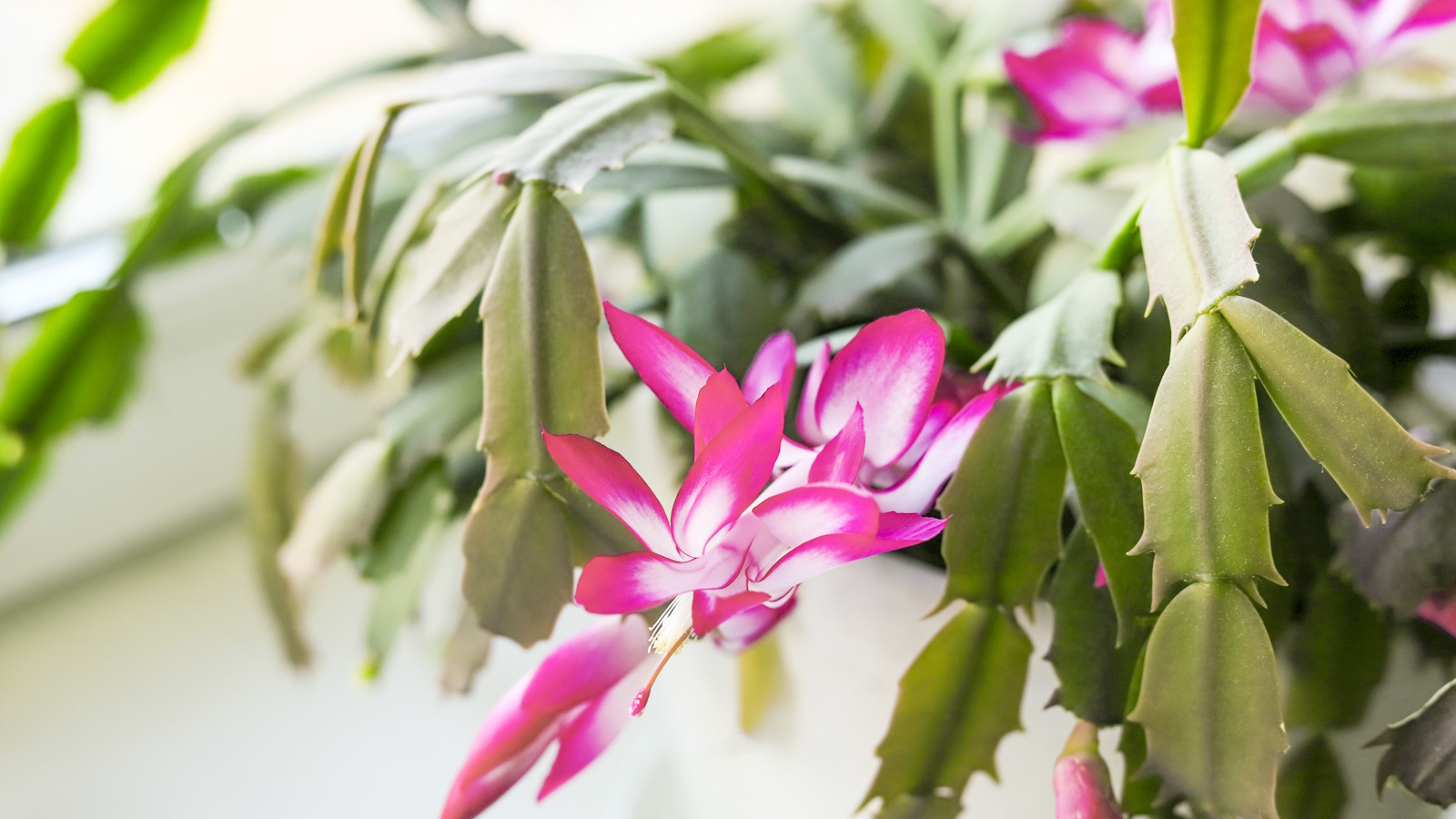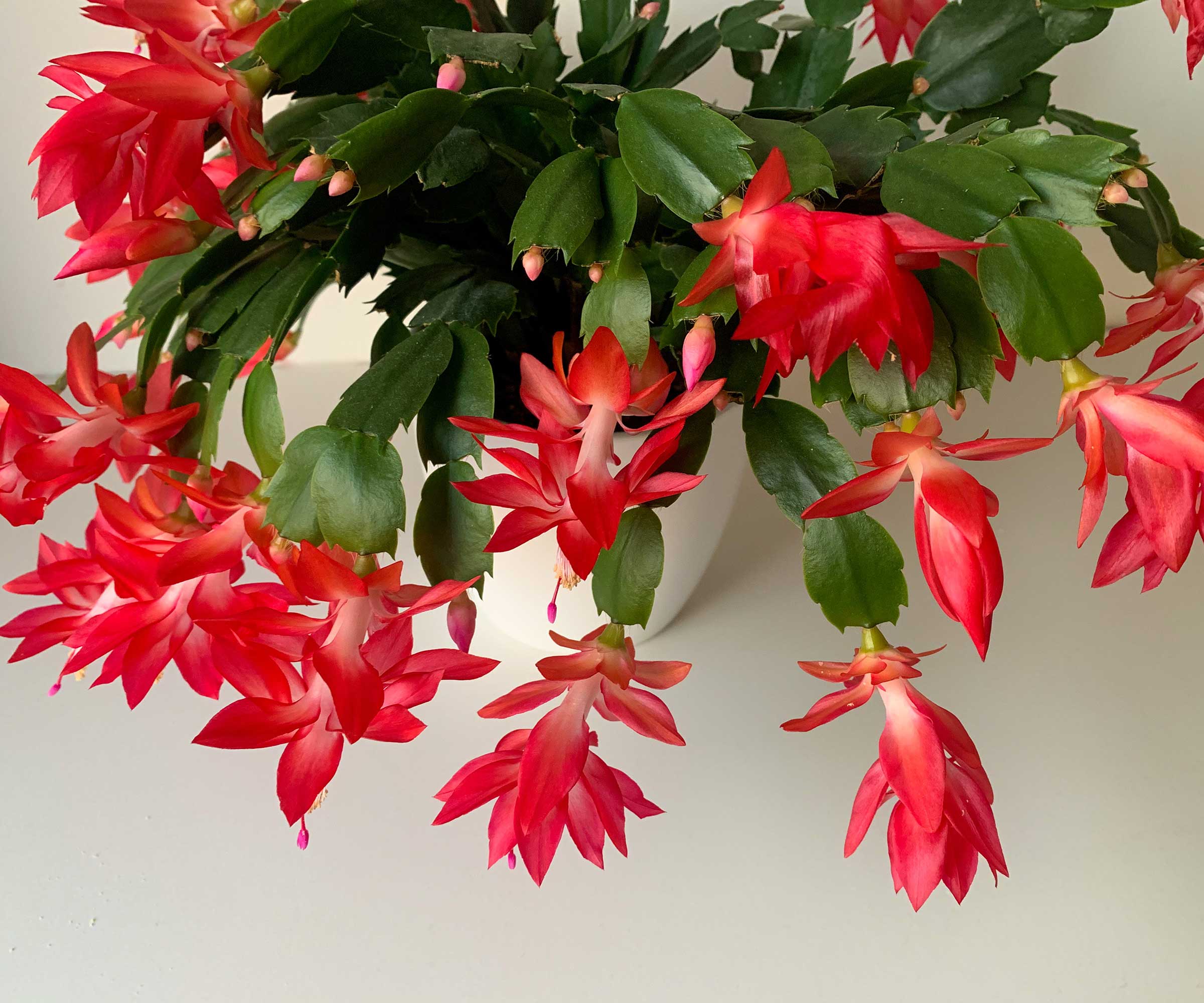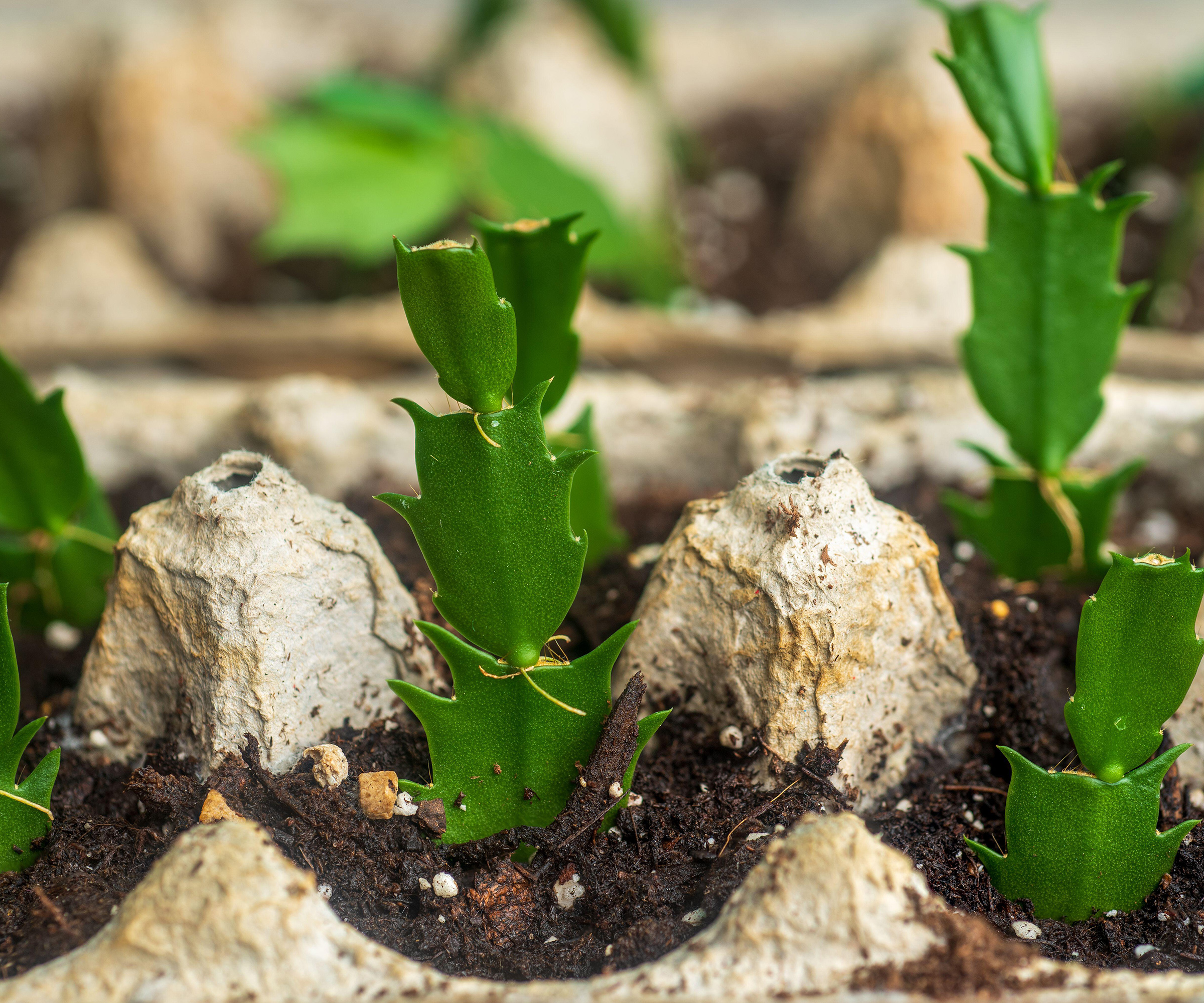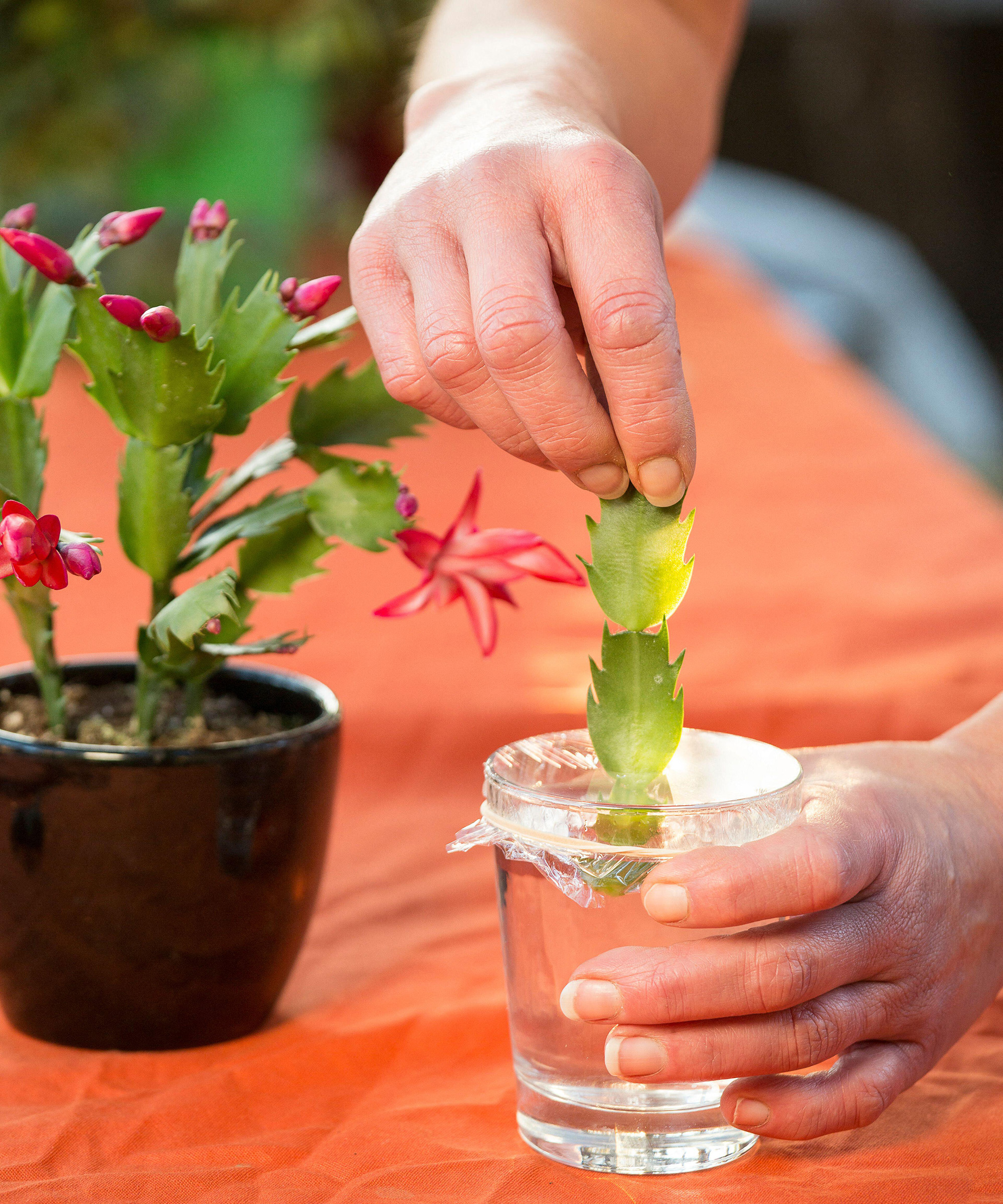How to propagate a Thanksgiving cactus – 3 expert methods to create new plants that make perfect holiday gifts
Houseplant professionals share the best methods for multiplying your seasonal succulents


Rachel Bull
Learning how to propagate a Thanksgiving cactus means you get more of your favorite succulents for free. These new plants will make wonderful, seasonal gift ideas to give to friends and family for the holidays. Alternatively, propagating is an efficient and great value way to expand your own indoor plant collection.
The three key methods of propagation are by using cuttings placed in soil, cuttings placed in water, and division of your existing plant. If you've cared for your Thanksgiving cactus well and have an already thriving plant, you might want instant results, in which case division would be the best option for you.
However, some houseplant experts prefer using the cuttings technique. We take you through each method step-by-step, and detail how to care for your new, baby plants to ensure they stay healthy.

It's best to propagate your Thanksgiving cactus once the flowering period is over
3 methods for Thanksgiving cactus propagation
When it comes to Thanksgiving cactus vs Christmas cactus, the propagation methods are fairly interchangeable. Whichever method you choose, the best time to propagate your plant is after it has finished blooming.
Although spring and summer will give the best results, Autumn Janus, plant expert at Perfect Plants, assures us that it is not necessary to only propagate them at these times. 'The Thanksgiving cactus will successfully propagate throughout the year indoors,' she says.

Autumn is a horticulture specialist and marketing professional at Perfect Plants Nursery. With four years of experience in the horticulture industry, she has developed a passion for helping people create beautiful indoor and outdoor spaces to enjoy. Her expertise in horticulture encompasses a broad range of activities, including plant care and selection, landscape design, and maintenance.
Propagating a Thanksgiving cactus by division

Division is a good method if you have a plant which is outgrowing its pot
Whilst this is a quick and effective method of propagation, it's important to note that it has the most impact on your plant.
Tom Knight, owner at ourhouseplants.com, doesn't favor this method as he says 'the charm of these plants are their full and bulky look and their arching stems as they mature. You'll lose this if you divide the plant'.
However, if this isn't a concern for you, this method will give you quick results. Tom Su, garden and landscaping expert outlines his steps below:
- Separate with care: Take care when lifting the plant from its container. Gently run your fingers through the roots and divide the root ball into smaller parts. Or just take off one small section. Healthy stems and substantial root systems are key to success.
- Repot your plants: Place each new plant into a container of a good potting mix. Give them light water and leave in indirect sunlight until they root.
- Add rooting hormone: Although it is optional, using a rooting hormone on the stem bottom speeds up rooting. (Try this rooting hormone for cuttings from Walmart).
- Aftercare: The cuttings and divided plants should be kept in bright indirect light. Lack of sufficient shade and too much direct sunlight will subject the plants to stress conditions.
- It will take two to four weeks for rooting to take place and then you should start to notice growth soon afterwards.

Owner of Lawn Edging Australia, a brand synonymous with innovative and sustainable garden design solutions. With over two decades in the landscaping industry, Tom has transformed countless gardens, infusing them with a unique blend of aesthetic appeal and environmental consciousness.
Propagating a Thanksgiving cactus in soil

Porous and loamy is best for propagating Thanksgiving cactus
If you choose to propagate using cuttings you need to decide whether to use segment (or stem) cuttings or leaf cuttings. 'They're very similar, says Tom Knight. 'The main difference is the length of the segment of plant you are propagating.
'If you look at the Thanksgiving and Christmas cactus, it's easy to see they grow in chain-like strands, with each leaf being an inch or so long,' explains Tom. 'Segment cuttings will have several leaves joined together in a chain, whereas leaf cuttings are single leaves. Both will work well.'
Top tip: put multiple cuttings in the same pot. This makes your plant fill out much faster than a single cutting.
Tom outlines his steps below:
- Make your cut: Choose healthy, mature leaves or segments. Avoid any that have a flower bud at the end. Use clean, sharp pruning shears - these houseplant snips from Amazon are an ideal size and shape - to make the cut. Allow the samples to dry and callus for a day or two.
- Place in a pot: Lay the cut ends of the leaf segments on top of a well-draining potting mix, burying them slightly. They don't need to be deep, but the cutting has to have good contact with the potting mix. You can use a rooting hormone, but it's not essential.
- Aftercare: Keep everything moist and warm. Roots should develop in a few weeks, and new plantlets will often emerge from the base of the segments or leaves a short time after.

A houseplant enthusiast that has run Ourhouseplants.com for the last 10 years. A popular website for anyone looking for success with indoor gardening or help getting their houseplants to thrive.
Propagating a Thanksgiving cactus in water

Enjoy watching the roots form in water
Luckily, knowing how to propagate a Thanksgiving cactus in water is the same as in soil. It's also a well-used method for propagating a Christmas cactus.
Autumn Janus favors the water method: 'I personally prefer propagating plants in water because I don’t have to water them as often and I enjoy watching the roots grow,' she says.
'It will take a few weeks, but once you see roots forming in the water wait until a network of roots have developed, then move your cuttings into a potting mix to grow on,' says Tom Knight.
Tom Su believes propagation in soil is generally more effective, but that water propagation can be successful, too.
'Put the cutting into a jar of water such that only the bottom part stays wet,' he advises, which is shown in the image above.
FAQs
Can you put Thanksgiving cactus cuttings straight into the soil?
'Cactus cuttings can be planted with ease directly in an open garden bed or in any type of container,' says Tom Knight, owner of Ourhousplants.com.
'Make sure the soil is porous and loamy for it to dry off fast, and not allow water to stick to its surface. Place the cut ends about an inch into the soil and press down lightly to fill around it,' he says.
Once you have mastered the art of houseplant propagation on one plant, it definitely feels easier to try it with others. The gratification of seeing new roots form and leaves grow is quite wonderful. It's useful to be clued up on the houseplant propagation mistakes to avoid, which could damage or kill your cuttings. And also, if you want to create new plants fast, our advice on how to speed up houseplant propagation might be very handy.
Sign up to the Homes & Gardens newsletter
Design expertise in your inbox – from inspiring decorating ideas and beautiful celebrity homes to practical gardening advice and shopping round-ups.

Teresa was part of a team that launched Easy Gardens magazine two years ago and edited it for some time. Teresa has been a Gardens Editor at Homes & Gardens, Country Homes & Interiors and Living Etc magazine since 2020 and has developed close working relationships with top garden designers, and has been exposed to an array of rich garden content and expertise.
- Rachel BullHead of Gardens
-
 How to grow astilbe – expert advice on cultivating this shade-tolerant flowering perennial
How to grow astilbe – expert advice on cultivating this shade-tolerant flowering perennialShade-tolerant and pest-resistant - astilbe are hardy and tough perennials that can thrive in many settings
By Ellen Wells Published
-
 Vintage prints are making a comeback – designers say to look out for these 5 nostalgic patterns this year
Vintage prints are making a comeback – designers say to look out for these 5 nostalgic patterns this yearThese vintage-style patterns are all the rage right now, and we spoke with design experts to learn how best to style them in the home
By Eleanor Richardson Published